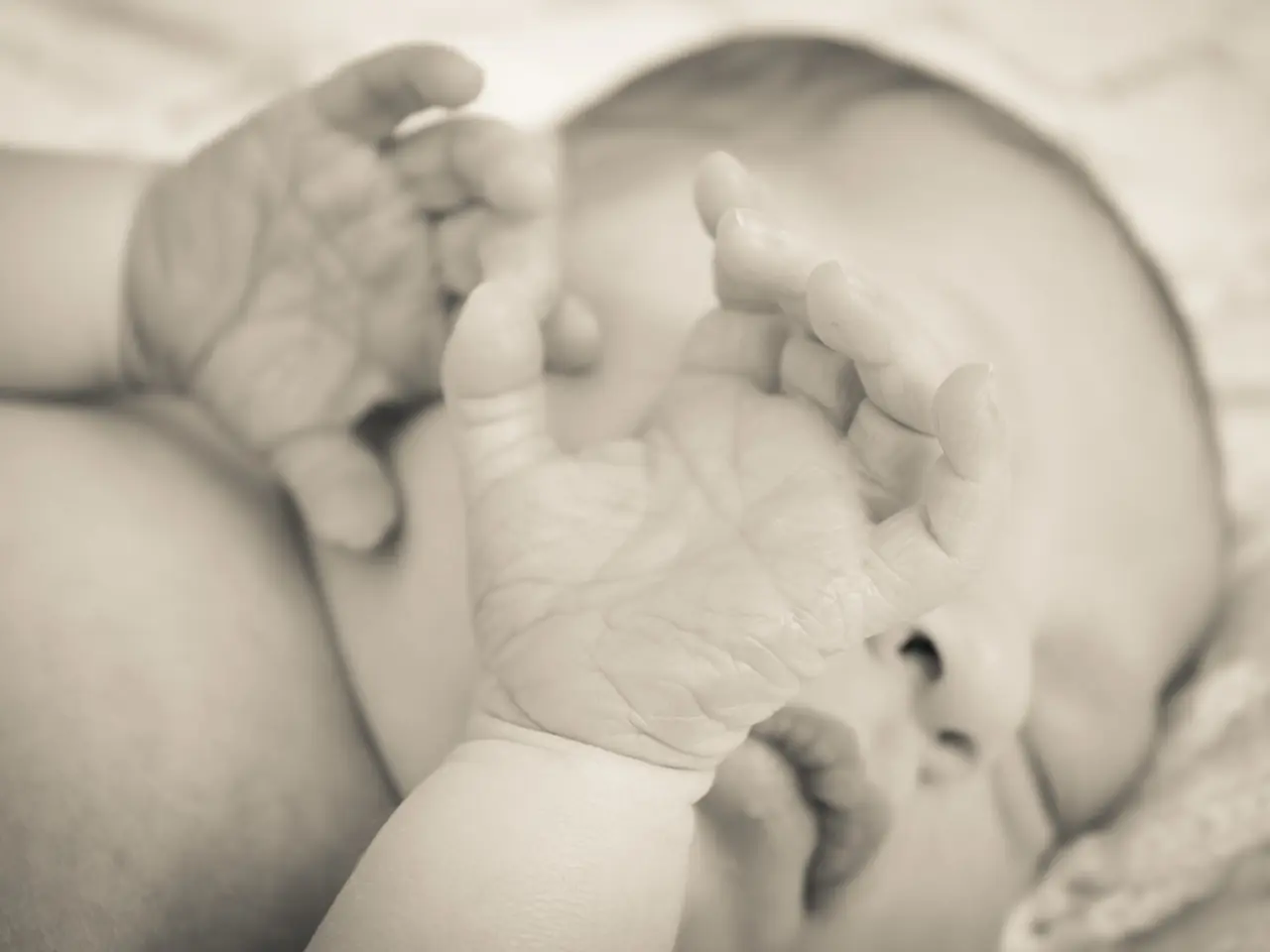Essential Information on Newborn Breathing Rates: A Comprehensive Guide
In the delicate world of newborns, understanding respiratory issues is crucial for parents and caregivers. Here's a breakdown of common causes, symptoms, and what to do when faced with a potential respiratory problem.
Newborns typically breathe between 40-60 times per minute, a rate that may slightly vary. However, a faster breathing rate can be a sign of concern, especially if it persists beyond a few minutes. It's essential to know that respiratory distress can come on suddenly and is more dangerous in newborns than in older children.
The most common causes of respiratory problems in newborns are underdeveloped lungs with insufficient surfactant production, leading to Neonatal Respiratory Distress Syndrome (NRDS). This condition is particularly prevalent in premature infants whose lungs may not be fully developed before 37 weeks. Other causes include delayed lung fluid clearance, known as Transient Tachypnea of the Newborn (TTN), which is more common in babies born via cesarean section before labor, and airway obstruction from meconium aspiration or infections.
Prematurity, maternal or delivery factors, family history, and allergies can significantly contribute to these conditions. For instance, preterm infants are at a higher risk not only for NRDS but also for early wheezing and chronic lung conditions due to lung immaturity and possible lung damage. Male sex and family history of allergies can also increase the risk of respiratory issues such as wheezing in preterm infants.
Signs of respiratory distress in newborns include unexpected sounds during breathing, nostril flaring, retraction, color changes, and rapid or slow breathing. If a baby stops breathing or loses consciousness, contact emergency services immediately. Unusual breathing after a choking or near-choking episode should also be a cause for concern.
It's important to note that babies who are very upset may breathe faster while crying, but their breathing will return to normal when they have calmed down. Newborns may also breathe at irregular intervals, even while sleeping, which is normal and referred to as periodic breathing. Sleeping babies may breathe more slowly, at a rate closer to 30 breaths per minute.
In the United States, dial 911 in case of an emergency. If you suspect your newborn is experiencing respiratory distress, seek medical attention without delay. Conditions like Persistent Pulmonary Hypertension of the Newborn (PPHN), where the baby's circulatory system continues to function as it did in the womb after birth, directing too much blood away from the lungs, can be life-threatening if left untreated.
Congenital anomalies can also cause a baby to consistently breathe faster than is healthy, including structural anomalies of the lungs, heart, nose, or respiratory passages. A collapsed lung can impede breathing in babies, especially those with lung anomalies or those who have experienced a traumatic injury.
Remember, knowledge is power when it comes to newborn care. If you suspect any respiratory problems, always err on the side of caution and seek medical help promptly.
- Mm, the faster breathing rate of a newborn could indicate a potential respiratory problem, which is a cause for concern if it persists beyond a few minutes.
- Aq, newborns with Neonatal Respiratory Distress Syndrome (NRDS) typically have underdeveloped lungs with insufficient surfactant production, making them more prevalent in premature infants.
- Science tells us that Transient Tachypnea of the Newborn (TTN) is another common cause, more common in babies born via cesarean section before labor.
- Asthma-like symptoms can be seen in preterm infants due to lung immaturity and possible lung damage, a risk widespread in premature newborns.
- Parenting a newborn requires awareness of signs of respiratory distress, such as unexpected sounds during breathing, nostril flaring, retraction, color changes, and rapid or slow breathing.
- Sleep is essential for a newborn's development, but irregular pauses between breathing during sleep, often referred to as periodic breathing, are normal and neither cause for alarm nor should they be confused with respiratory distress.
- Regular workplace-wellness programs can educate parents about detecting early signs of respiratory issues, ensuring the health and wellness of their newborns.
- Fitness and exercise, even light physical activity, can be beneficial for the respiratory health of adults, but they are not typically part of newborn care routines.
- Mental health is significant, and new parents should be aware of the connection between mental health and postpartum respiratory conditions.
- In addition to respiratory conditions, conditions like skin-care issues, neurological disorders, chronic diseases, and therapies and treatments for a variety of medical conditions can all play a role in the overall health and wellbeing of a newborn. CBD oil, for example, is increasingly being used to treat neurological disorders and can impact a newborn's health if not monitored closely. Sports and sports betting, though seemingly unrelated, are best left for the adults in the household to enjoy–ensuring a safe and nurturing environment for the newborn.




